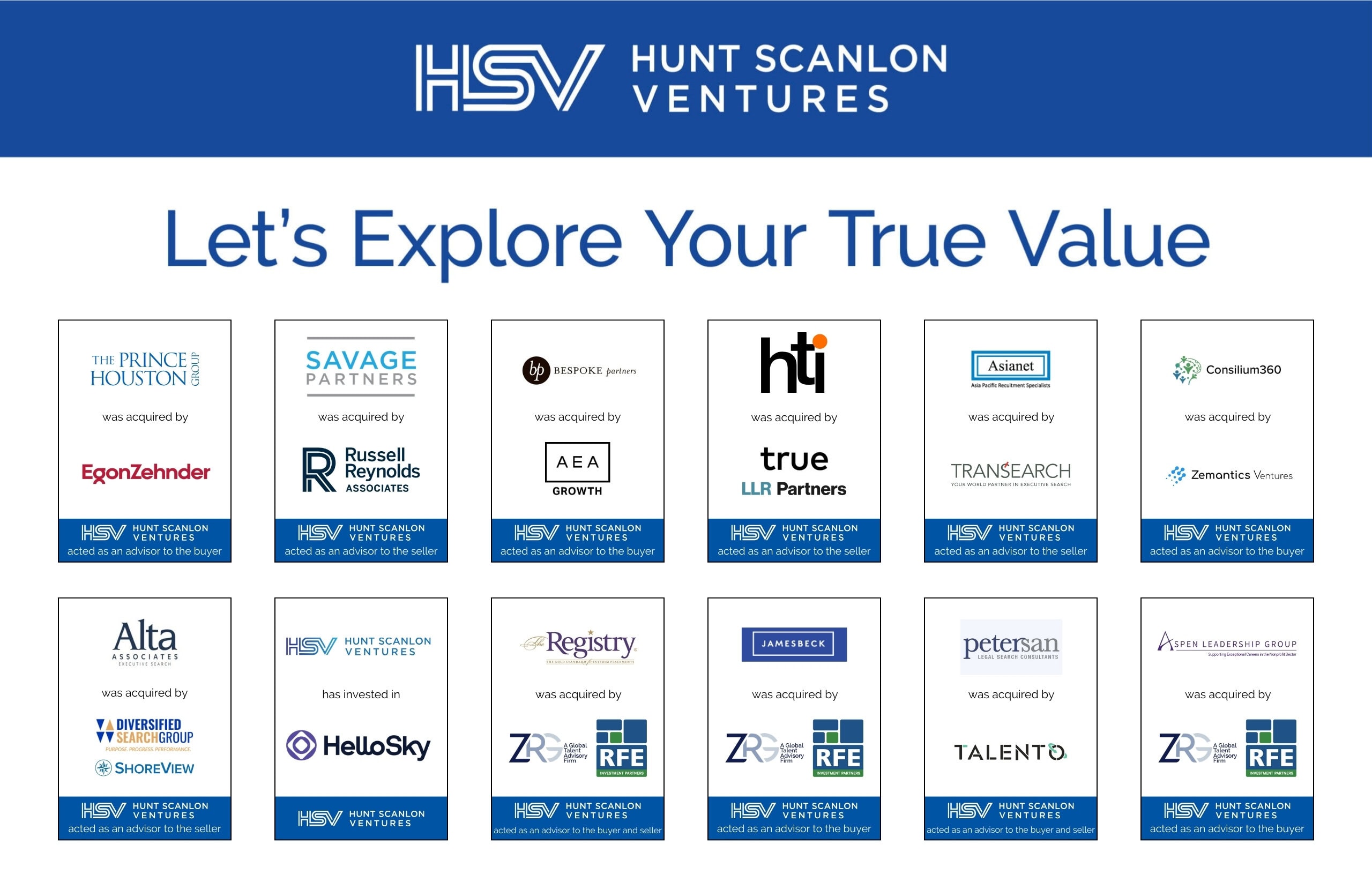Mar Hernandez, a co-founder at NU Advisory Partners, has been gathering talent insights from PE firms and portfolio companies. A big shift she is seeing among them is an increased focus on hiring HR professionals who can think strategically about talent across their holdings. Drew Seaman, managing director at Hunt Scanlon Ventures, takes a closer look.
More than half of the assignments NU Advisory Partners works on these days are for companies owned by private equity investors. To be sure, private capital is becoming an increasingly significant player in a growing number of industries and search firms dedicated to the space are reaping big rewards.
In the U.S., some 12 million people are now employed by PE portfolio companies. Globally, the assets managed by private capital — private equity, venture capital, family offices and similar investors — increased by 132% to $22.6 trillion over the 10-year period that ended in 2022.
For Mar Hernandez, a co-founder and partner with NU Advisory, working with financial sponsors to staff their portfolio companies is addictive. “The assignments can be complex. The pace is fast. And the people you deal with at PE firms and their portfolios are invigoratingly smart and focused,” she said.
Ms. Hernandez is exceptionally driven, collaborative, and customer-centric, according to clients and colleagues. She leverages the firm’s technology-enabled approach when using her network to find business “enablers”, visionary, and sometimes unexpected talent for her clients, and also supporting boards, financial services, fintech, telecommunications, healthcare services, manufacturing and hospitality organizations with their changing talent needs.
Prior to co-founding NU Advisory, Ms. Hernandez was a senior member of the corporate officers, DE&I, and financial services practice at Russell Reynolds Associates, where she also served as co-head of the firm’s Hispanic board initiative. Before her 12 years in the search industry, she held senior sales and marketing roles with companies including Amicorp, Mphasis-EDS, and TTech.
Drew Seaman, managing director at Hunt Scanlon Ventures based in Greenwich, Conn., recently sat down with Ms. Hernandez to get a sense of the market and to gather some new insights on the changing talent requirements for leadership roles across the PE spectrum. Following are excerpts from that conversation.

Mar, what’s new in private equity hiring?
Every hire at a PE-owned company is seen through a lens of their overall mission: How will this person help us grow revenue, improve efficiency, and contribute to a successful exit? In the process, PE firms are seeing an accelerating need to build strong talent teams in their portfolio companies. To do that, a strong HR and talent function is critical, as many portfolio companies are simultaneously making acquisitions and restructuring their workforce. It is a dynamic environment, to be sure.
What sort of HR leaders are in demand by your PE clients?
Great question. As we come in on searches, we are being asked much more often now to bring senior HR professionals into the PE firms who can think strategically about talent across their portfolio companies. It is a mandate with a very wide aperture. That’s great news for portfolio companies because they play an important role supporting the executive team and enabling the business agenda.
“We are being asked to bring senior HR professionals into the PE firms who can think strategically about talent across their portfolio companies. It is a mandate with a very wide aperture.”
So how do you and your partners home in on these mandates?
When we screen candidates for roles at sponsor-owned companies, we zero in on the financials of their previous employers. If these candidates aren’t keenly aware of how their companies make money, they aren’t cut out for private equity, regardless of their function. There is an important nuance, a distinction if you will, about how we search for talent that I think sets us apart from other search firms: We look for talent who can be scrappy, but who can also sophisticated about strategy. The most important questions involve results: What has been their professional track record for contributing to operational efficiencies and growth? That’s our focus on every search assignment we take on.
What else do you look for in candidates?
Candidates for PE-backed company roles must be unusually agile and adaptable. Rapid change is constant at a PE-owned company. The goal, after all, is to transform companies and sell them as quickly as possible. The sooner the company reaches its financial target and exits, the sooner everybody makes money. At the end of the day, in a PE portfolio company new hires must be prepared to roll up their sleeves and work lean. You won’t have minions to make your presentations for you, as you might working at a big corporation.
Sounds challenging.
Challenging is an understatement. Ideal candidates are willing to earn less now for the potential of much more later. The largest part of the compensation packages for incoming talent is equity that will pay off when there is an exit. The portfolio company life isn’t one for people who want to be a corporate lifer. The people who love it are attracted to a series of challenges. When one job ends because of an exit or strategy shift, there is always another firm that needs help. Investors notice people who have performed well and contributed to a successful exit, and they often hire them for other portfolio companies. Track records, as I said before, are worth their weight in gold. Everything swings back to successful professional track records.
Mar, how do you approach a new client?
That is another good question and the reason is because not all PE firms and portfolio companies are the same. We move fast at NU Advisory. We have a solid team, we are efficient. We know so much about so many different markets. And our networks run deep. So, when we start an engagement, we spend a fair amount of time with the company’s current leadership and the investors. What we are after in these early meetings is a deep understanding of the company’s strategy and how it makes money. We want to know its challenges and pain points. We want to assess its current capabilities. And then we want to focus on culture, because at the end of the day we need to ensure that who we think is the right fit actually is. Once we align with our client’s objectives, finding the best talent comes easy.
Article By

Drew Seaman
Drew Seaman is a Managing Director at Hunt Scanlon Ventures. He is responsible for co-managing the firm’s investment portfolio of executive search, talent acquisition, private equity, and investment firms. In addition to sourcing new opportunities and managing the firm’s current investments, Drew leads the technical aspects of client engagements, including valuation and financial analysis and the preparation of investment marketing materials.
Drew began his career in wealth management before joining BMO Capital Markets as an Investment Banking Associate in the Financial Institutions Group. Drew assisted with transaction execution and prepared comprehensive valuation and financial analyses for clients in the specialty finance, asset and wealth management, and insurance sectors.
Drew earned a B.A. in Economics from DePauw University, where he was quarterback on the varsity football team. He earned his M.B.A. with concentrations in Finance and Accounting from NYU’s Stern School of Business. Connect with Drew.






